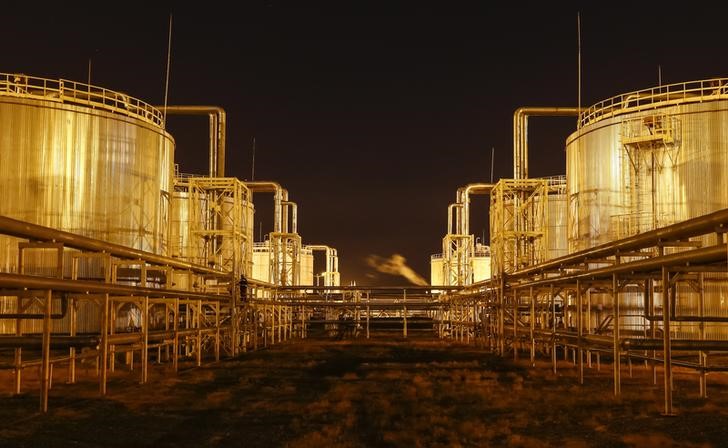By Peter Nurse
Investing.com - Oil prices traded lower Monday, continuing the recent negative trend as the spread of China’s coronavirus hits demand from the world’s largest importer while doubts remain about the extent and timing of future production cuts from major producers.
By 8:20 AM ET (1320 GMT), U.S. crude futures were 0.1% lower at $50.30 a barrel, while futures in U.K. Brent, the global crude benchmark, were 0.3% lower at $54.30 a barrel.
Last week, the oil market posted a fifth straight losing week. Combined losses over the five weeks stood at more than 22% for both benchmarks, leaving them in bear market territory.
The coronavirus outbreak shows no immediate signs of slowing down, with the death toll climbing above 900 over the weekend, overtaking that of the SARS outbreak almost two decades ago, and with over 40,000 people affected. Some manufacturers reopened their offices Monday, but a large number of workplaces still remain closed and many white-collar workers will continue to work from home.
The toll on China's already-slowing economy has been heavy, with Goldman Sachs (NYSE:GS) cutting its first quarter GDP target to 4% from 5.6% previously and saying an even deeper hit is possible.
“Following the Lunar New Year, the impact that the coronavirus is having on oil demand is becoming clearer, “ said analysts at ING, in a research note. “Refinery run rates for independent refiners in Shandong stood at 50.33% as of 7 February, down from 64.56% prior to the Lunar New Year holidays.”
“These cuts have led to a sharp increase in crude oil inventories in the country over the last 2 weeks, with Shandong crude stocks increasing by 11.57MMbbls, to total 51.69MMbbls as of the 7 February.”
Turning to the supply side of the equation, the latest Platts survey of production levels from the members of the Organization of Petroleum Exporting Countries released Friday found the bloc's crude oil production fell 470,000 b/d in January.
This reduction hasn’t been enough to give the oil prices a boost, but there is still no word from Russia on whether they will back the additional cuts of 600,000 barrels a day suggested by the technical experts of OPEC and its allies last week.
Additionally, there are growing doubts over whether the extraordinary meeting currently set for the beginning of March will be moved up, ING added, with Azerbaijan’s energy minister commenting that an early meeting “most likely won’t happen”.
